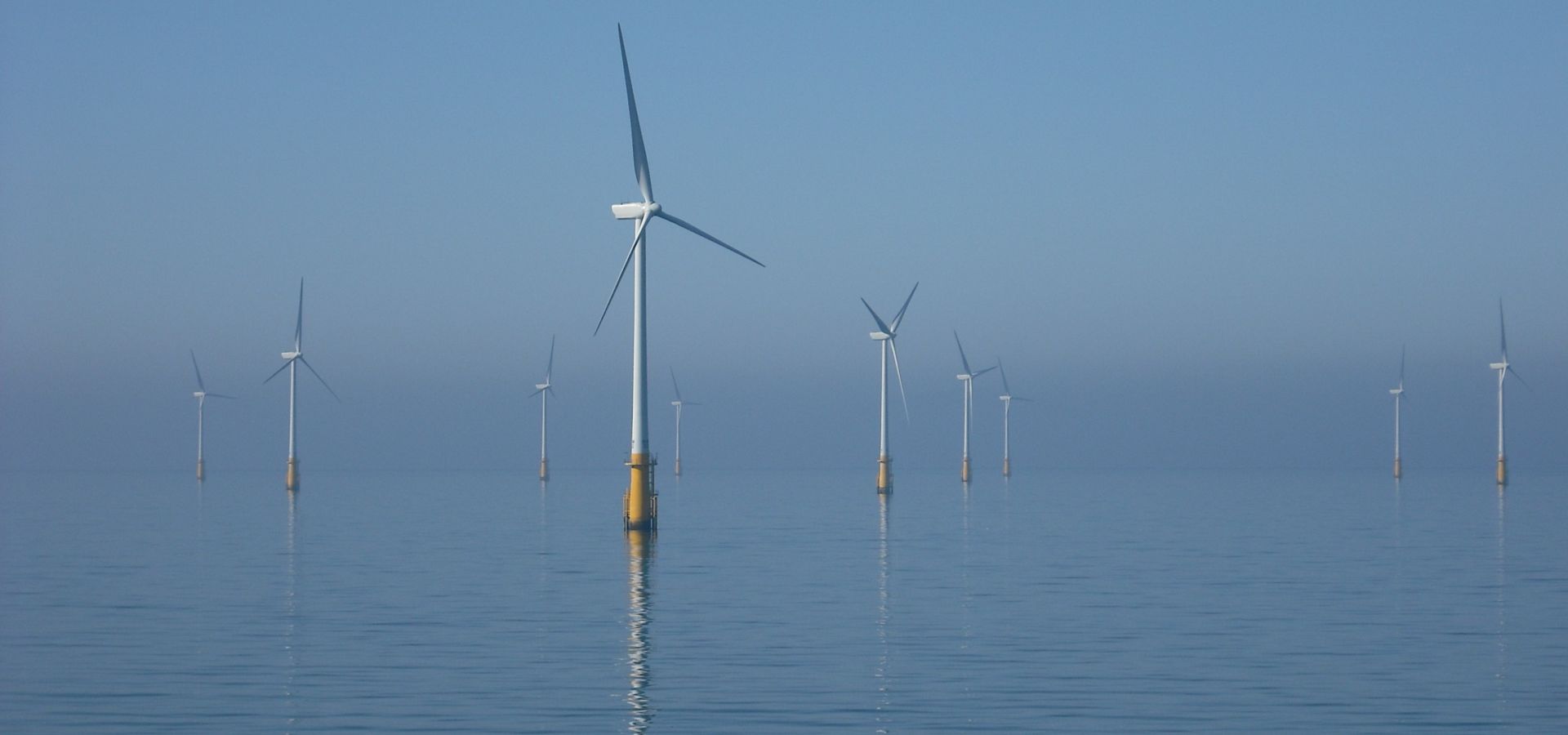A summary of the Polish power industry in 2018 gives no apparent reason for optimism. But appearances can be deceiving: there is a flicker of light on the horizon. The only question is whether it is not appearing too late, says Michał Olszewski.

The Polish government wants to focus more on the development of offshore wind farms (Photo by Andy Dingley; CC BY-SA 3.0)
In Poland, the most important issue for consumers right now is electricity prices. Energy prices were set to skyrocket this year due to the rising price of CO2 emissions allowances and the monumental demands of modernising the antiquated energy sector. However, power providers were banned from increasing energy prices during the election year.
Where did the government get the money to keep power prices low?
The gap has been stopped, but there is no particular reason to celebrate – the government got the money from selling unused emissions allowances. There is no contradiction in this: allowances are going up in price, but Polish power plants are still getting some of theirs free of charge.
This is because Poland has taken advantage of a loophole in the EU law which allows some free emission allowances to modernize electricity generation, the so-called “derogations”, which work to the country’s advantage. With one reservation – at least half of the amount is supposed to be invested in the renewable energy sector. Meanwhile, these profits are almost entirely offset by the losses of state energy companies due to the ban on increasing energy prices this year.
Not only will the money not be spent as intended, but that lifeline may turn out to be frayed. Gazeta Wyborcza reports that lawyers for the organisation ClientEarth are claiming that the government’s action can be interpreted as public aid – something that needs to be assessed by the European Commission before it can be enacted. In the worst-case scenario, over PLN 4 billion (around 935 million Euros) in funds from the derogation may turn out to have been spent unlawfully.
Poland may miss its 2020 renewable energy targets
In addition, successive governments’ years of neglect in maintaining the coal status quo are coming back to bite them. The threshold for 15 percent annual energy from renewable sources by 2020 had previously seemed realistic, but it may yet be missed. According to the government there will be a shortfall of just over 1% in meeting obligations. This is not much, but nor is it little when you consider that the Law and Justice government has blocked the development of wind energy.
However, individual customers are seeking to save the day, having, in the face of all difficulties, doubled the number of new installations in 2018 compared to 2017.
According to Dr Michał Wilczyński, an independent specialist in coal energy, there are currently about 50,000 solar collectors and photovoltaic cells operating across the country. And this figure is negligible when you consider the more than three million operating in Germany.
The unfulfilled commitments may seriously impact the Polish economy. According to Supreme Audit Office reports, failing to meet the 2020 target of 15% energy from renewable energy sources will burden the Polish budget to the tune of around PLN 8 billion (about 2.1 billion Euros) annually. And where will that come from? From so-called “statistical transfers”: countries that meet their obligations will be able to sell surpluses to countries which come in below par. The problem is that Poland is not the only country lagging behind, which may mean that the demand for green energy will increase, pushing up prices. According to Dr Grzegorz Wiśniewski, director of the Renewable Energy Institute, Poland must reckon on a purchase cost of at least PLN 16 billion per year. This would be a catastrophic sum for the Polish economy.
Can offshore wind fill the gap?
At least part of the Polish political class is starting to wake up to these threats. In recent months, there have been signs that the government may be looking for ways to break this impasse.
Having put a chokehold on land-based wind power, the government has declared the development of offshore wind energy. But here, another problem arises showing just how costly avoidance and erroneous decisions are in the energy sector. Wind farms involve far greater costs offshore than on land; they require the entire system for feeding their electricity into the network to be built from scratch. The time to develop this structure was years ago – but instead the government has spent all its time and money subsidizing coal.
Nevertheless, this turn to offshore wind may indicate that the politicians have woken from their sleep. Within the government itself, two parallel narratives can be heard: the first is a hardcore coal line represented by energy minister Krzysztof Tchórzewski, who announced that in the coming decades, land-based wind energy will disappear from Poland. However, there is also the narrative of deputy prime minister Jarosław Gowin, whose party built the Energia Plus programme. By facilitating the investment process and creating a fast-track for administrative formalities, Energia Plus is designed to add a further 50,000 prosumers by the end of 2019. Interestingly, these facilities are already written into Polish law, except that they remain a fiction. Meanwhile, a new proposal would subject micro-installations to a lower VAT rate.
Until recently, Jarosław Gowin’s party had opposed this solution. What has changed within a few short months? Either some right-wing politicians have understood how difficult a situation the Polish power industry is currently in, or they have seen political advantage in ecological stances.
Even more far-reaching ideas are coming from Robert Biedron’s Wiosna [Spring] party, which wants to close all Polish mines by 2035. This is not a very realistic proposition, considering that some of the coal is exported at a profit to European mines, but it shows that we are talking increasingly boldly about the energy sector and the need for solutions. Let us hope it is not too late.